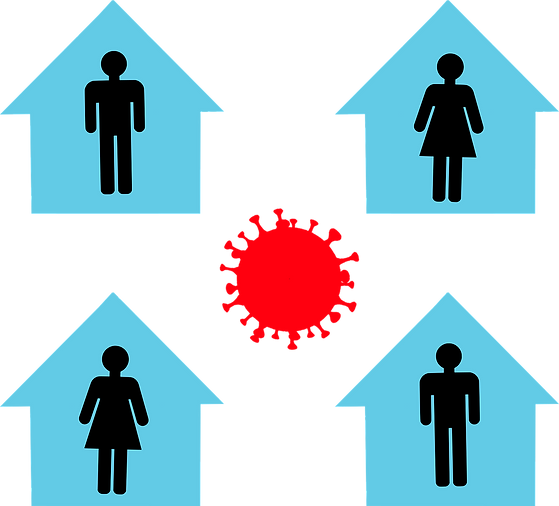
BREAK THE CHAIN
Let us come together and break the chain of infections.
DO YOUR PART.
These are unprecedented times and we are forced to do things that we may not be used to or are comfortable with. But these are essential to stop the virus from spreading even more. We want to avoid it getting to the phase where a lot of people get infected at the same time and our healthcare facilities cannot handle everyone at the same time. That is what happened in Italy and we need to learn from those experiences around us.
At the root, there are just 3 things:
-
Hand Hygiene - clean hands often and before you touch your face wash hands
-
Social Distancing - do not gather, try not to go out unless for essentials, keep six feet distance if you must go out
-
Self Quarantine - if you feel sick or if you have traveled to affected countries or places, self-quarantine and observe isolation guidelines

Hand Hygiene
Hand hygiene is often brought up as a necessity in the fight against COVID-19. Since we use our hands to touch anything and everything, they can easily transmit diseases from one person to another. Wash your hands for at least 20 seconds with soap and water before you touch your face or eat any foods. If you don't have the facilities to wash your hands, according to the CDC, you can clean your hands using hand sanitizer containing at least 60% rubbing alcohol.

What You Need To Know About Handwashing
Watch this video from CDC
How to Wash - from CDC
Follow these five steps every time.
-
Wet your hands with clean, running water (warm or cold), turn off the tap, and apply soap.
-
Lather your hands by rubbing them together with the soap. Lather the backs of your hands, between your fingers, and under your nails.
-
Scrub your hands for at least 20 seconds. Need a timer? Hum the “Happy Birthday” song from beginning to end twice.
-
Rinse your hands well under clean, running water.
-
Dry your hands using a clean towel or air dry them.
Social Distancing
Social distancing is neglected by many people in regions where the virus is rampant, yet lock down is not required, but is one of the most important things to do.
-
Keep 6 feet distance from other people when you leave your place of living, but in regions where social distancing is recommended, stay at home and physically away from other people as much as possible.
-
The most dangerous part of this virus is the rapid spread.
-
Even if you think you are not at risk to get COVID-19:
-
There are many studies that show that people of all ages and people with and without underlying conditions are at risk for COVID-19 and
-
Even if you do not get the disease, you may become a carrier who spreads it to someone more susceptible than yourself.
-

Social Distancing 101 - from City of Sammamish
I CAN:
Remember that these changes are temporary and necessary to help our community stay healthy
-
Take a walk, ride my bike, and enjoy nature by myself or with the family I live with
-
Walk my pets and take them to the vet for care
-
Get food at the grocery store or as takeout from a restaurant
-
Go to the pharmacy
-
Go to medical appointment, after checking with my doctor first
-
Help someone else get necessary supplies
I SHOULD NOT:
Remember that these changes are temporary and necessary to help our community stay healthy
-
Go into work unless I must be there in person
-
Make social visits to friends or family
-
Get closer than 6 feet from people if I go out
-
Travel for vacation
-
Visit loved ones in the hospital, nursing home, or residential care facility
-
Let my kids play with other kids who aren't maintaining six feet of distance

Self-Quarantine
-
If you are sick, isolate yourself from other people. Self-quarantine makes sure that you don't spread the virus to other people.
-
This isolation should last at least 2 week or until you stop exhibiting symptoms.
-
Dedicate one room and, if possible, one bathroom for the infected person.
-
Have one person as a designated caretaker for them.
-
If there is any room in which the infected person comes in contact with others, the infected person should wear a mask.
-
If the infected person has trouble breathing and cannot wear the mask, the designated caretaker and any other people who come in contact with the infected person should wear masks.
-
Anything that the infected person uses should be constantly disinfected (phone, doorknobs, etc.).
-
After the infected person has recovered, the room that was dedicated to them, clothes they wore, things they touched, etc. must be washed / sanitized.
"This is your chance to stay on your couch, watch TV, and change the world!" - Anonymous
Please also check out the COVID-19 FAQs page.

